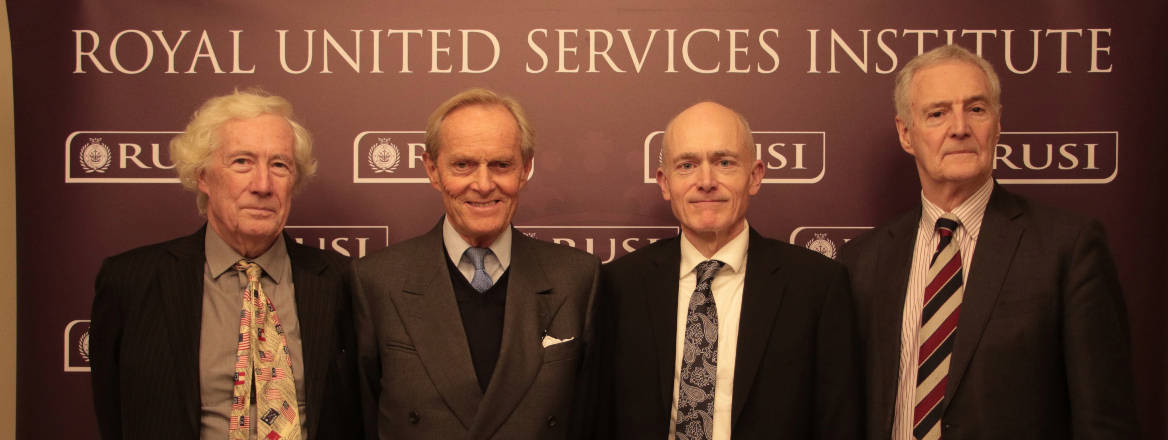Iron and Blood Author Peter Wilson Presented With The Duke of Wellington Medal
On 11 December, Professor Peter Wilson accepted RUSI’s 2023 Duke of Wellington Medal for his book “Iron and Blood: A Military History of the German-Speaking Peoples Since 1500.”
The Duke of Wellington Medal for Military History is awarded on an annual basis for the best English language writing in the discipline. A total of 47 different works were submitted for this year’s competition, and the award was presented by His Grace the Duke of Wellington, the eighth direct descendent of the first Duke, who inspired and helped found RUSI in 1831.
“Iron and Blood: A Military History of the German-Speaking Peoples Since 1500” was praised by this year’s judges for offering a masterly reappraisal of German militarism and warfighting over the last five centuries, leading to the rise of Prussia and the world wars.
Encompassing political, military, technological and economic change, the book tells the story of the German-speaking lands, from the Rhine to the Balkan frontier, from Switzerland to the North Sea. Professor Wilson considers a large variety of factors, from weapons development to recruitment and battlefield strategy.
In his lecture delivered following the award ceremony, Professor Wilson - who is President of the Society for the History of War, a fellow of the Royal Historical Society and Chichele Professor of the History of War at the University of Oxford - reflected on this complex history, breaking down key moments and challenging preconceptions about a particular ‘German way of war’.
The event was chaired by Professor Michael Clarke, RUSI Distinguished Fellow and head of the panel of judges.
Reflecting on this year’s award, Professor Clarke said:
The Duke of Wellington Medal for Military History shows, again, that the profession of military history is in robust good health. It has never been better-researched, from all angles, and it has never been so popular. And Peter Wilson's worthy winning book in this year's competition shows contemporary military history-writing at its very best. There is a lifetime of scholarship behind it; it is a terrific literary achievement and yet it reads, for all its immense detail, with a clarity and lightness of touch that makes it a delight to spend some time with. Not least, it serves to change many prevailing views about the nature of Germany's old 'war culture'.
Professor Michael Clarke
RUSI Distinguished Fellow, Military Sciences


